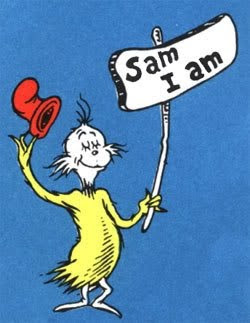In her article, Senior examines a number of studies concerning the effects of parenting on the happiness of adults. As you might expect from the title of the piece, the implications are overwhelmingly negative (unless you happen to live in Denmark or other countries with progressive parental work-leave policies). Despite the findings, which include lower reported rates of happiness in virtually every aspect of life among parents as compared to non-parents, and "child care" ranking near the bottom in a survey about the enjoyability of tasks and activities; and despite the provocative title of the piece and hazy photos of quietly desperate-looking parents on its pages, the article ends on a note that is, if not upbeat, at least hopeful. Senior does not dispute the findings that suggest that parenting makes us unhappy, but she questions what we mean by "happiness," and invokes psychologist Tom Gilovich, who asks whether our "minute-to-minute happiness" is more important than our "retroactive evaluations" of our lives.
Of course I can only speak from my own limited experience as a parent, but I have a few quibbles with the bleaker implications of this research and the way it is framed by articles like Senior's.
First of all, the subjects of the research and the characters in Senior's anecdotes are by and large harried parents who work full-time jobs and only deal with their kids when they are already exhausted. I realize that I am in the minority insofar as I have the luxury of being able to stay home with my kids. Yesterday on the NPR program Tell Me More, where Senior was among the guests and the discussion revolved around dads' reactions to her article, Rice Daddies and Daddy Dialectic contributor Jason Sperber (daddy in a strange land) explained in a concise and moving way why parenting makes him happy. Like me, Jason is a stay-at-home dad with no regrets about having kids and no major resentment toward the day-to-day chores of child care.
I'm not aware of any studies about how having children affects the happiness of those of us who don't have the added stress of trying to bring home the bacon, but I suspect that we would be significantly less unhappy than working parents. My argument, then, is that the existing research does not really measure frustration with parenting, but rather frustration with trying to fulfill the responsibilities and expectations of both work and family. This is not a huge revelation, and in fact both Senior and the authors of the studies she cites acknowledge that this is the case. However, by framing their work in terms of "grueling life with kids vs. freewheeling childless adulthood," they cast parents as victims of their own decision to have children rather than critique a socio-economic model that makes it almost impossible for most parents to both provide for their children and enjoy them. Maybe the conversation shouldn't focus on parenting as problematic, but instead should be framed as "why working parents hate life."
Of course, I could be way off base in suspecting that the work side of the equation is at least as soul-sucking as the parenting side, because I'm not a huge fan of being employed. I have had jobs that I enjoyed, but I have never had one that I would trade for staying home with my kids, and I think that the majority of people I know would rather take care of their kids than go to the office. I want to see the study that asks people if they would quit their jobs and be full-time parents if they could afford to do so. Or at least reduce the hours they work by half and spend those hours with the family.
Senior's article and her comments on NPR emphasize that much of this unhappiness epidemic is caused by a feeling of lost independence on the part of parents, especially those who (like my wife and me) started families later in life, after having lived unencumbered for so many years. This made me wonder what these unhappy parents were doing that was so awesome before the kids came along and ruined everything. My wife and I had been together for twenty years before our twin girls were born a year ago, and we had many adventures in the pre-kid era. But it's not like as soon as the kids were born, everything got boring. Quite the contrary. Raising children has been exciting, scary, and hilarious so far. Sometimes I miss traveling, but if my parents are a valid example, traveling with kids is neither impossible nor necessarily painful. The other stuff--movies, parties, restaurants--bah! Who needs it.
I'm not sure why I feel compelled to bicker about the implications of this research, which seem to be bolstered every time a new study comes out (except in Denmark). Maybe I'm trying to convince myself that I will be able to avoid the crushing stress and disappointment that most parents apparently experience. Or maybe I don't want people who read about sociological research to be discouraged from producing classmates for my kids. But part of me feels like the people who report being unhappy as parents probably would have been equally unhappy had they decided not to have children. And the happy, childless subjects had much more exciting and fulfilling lives than the rest of us schmucks could ever have hoped for with or without kids, and had the foresight to know that parenting was not for them. The other study I want someone to conduct is a comparison between parents and these childless gadabouts of their "retroactive evaluations" of their lives once the children have grown up. I hope that it would show no significant difference.
Please visit me at Beta Dad, where I post cute pictures of babies.



